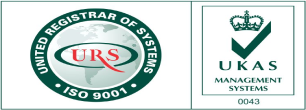
Industrial-machinery and smart manufacturing
The landscape of industrial machinery in manufacturing is seeing an innovative surge of technological advancements based on smart manufacturing. This is in response to the daunting task of validating and managing modern manufacturing and assembly operations to achieve a premium level of quality while optimizing cost.
Join us in this first of four podcasts on Smart Manufacturing by Siemens Digital Industries, a solution for industrial machinery. We are joined by our expert Bill Davis, Director of Industrial Machinery and Heavy Equipment Solutions at Siemens.
Bill’s expertise spans over 30-years, including both the industrial machinery and heavy equipment industries. As an engineer, he has active participation in CAD, PLM, PDM, the digital enterprise and the digital thread. Listen to his evaluation of the manufacturing industry, assessing the Smart Manufacturing environment and forecasting innovative solutions.
Smart manufacturing and machining
Smart manufacturing allows a company to extract information and drive it into manufacturing operations, including CNC programming or inspection and assembly processes. This information formulates a digital twin at the product level.
In machining, manufacturers are asking for additional content, sensors, and feedback on how production and manufacturing processes are executing, for leveraging into the manufacturing digital twin. For example, suppose an inspection process is used when making the machining tool. Adding that inspection data from the machine tool creates traceability from design to manufacturing and a closed-loop process based on a high-fidelity digital twin. The next crucial step is linking together the digital twin of the product with the digital twin of the machine.
The manufacturing industry – process and trends
A comprehensive solution assists to realize every step in the manufacturing process: idea creation, developing the product via machining, executing in manufacturing, and extending across the entire service life based on the digital twin. This enables machine manufacturers and designers to both create value, drive down cost and compress delivery schedules. Moreover, it allows for closing the loop faster between manufacturing operations and engineering.
The manufacturing industry is in a continuous process of change due to these trends:
- Connectability – Customers expect machines to communicate with the other machinery in the plant via a machine builder (OEM).
- Adaptability – With all the information generated by sensors and capabilities, smart machines can recognize changes in upstream products and processes and adjust to these dynamic operating conditions. This is a type of artificial intelligence for machinery, which creates customer expectation for highly flexible machines capable of producing multiple types of products.
- Predictability – An increasing emphasis is on the simulation and predictability of a machine’s performance in the field requiring a high-fidelity digital twin of the machine. This process is more complex with higher speeds, more significant use cases and more sophisticated machinery.
- Extendability –Another key trend is extending the life of a machine in the customer facility, with predicted maintenance and adaptive performance. The objective is to create more value for a manufacturing customer and to optimize the cash flow.
Another major shift in utilizing a smart manufacturing approach is production-as-a-service, where customers buy machine capacity instead of investing in purchasing machinery. This emerging dynamic is primarily happening with equipment manufacturers that lease machines. The difference is in paying for performance only when the machine is being used.
Therefore, the OEM has a vested interest to ensure that the machine is always running optimally. If the machine needs to be upgraded to meet production requirements or requires general service, the OEM is responsible for correcting those performance improvements or downtime issues and incentivized to get it back up and running quickly to continue the cash flow.
By the Author:
Bill Davis is the acting Industrial Machinery and Heavy Equipment Industry leader for Siemens Digital Industries.


